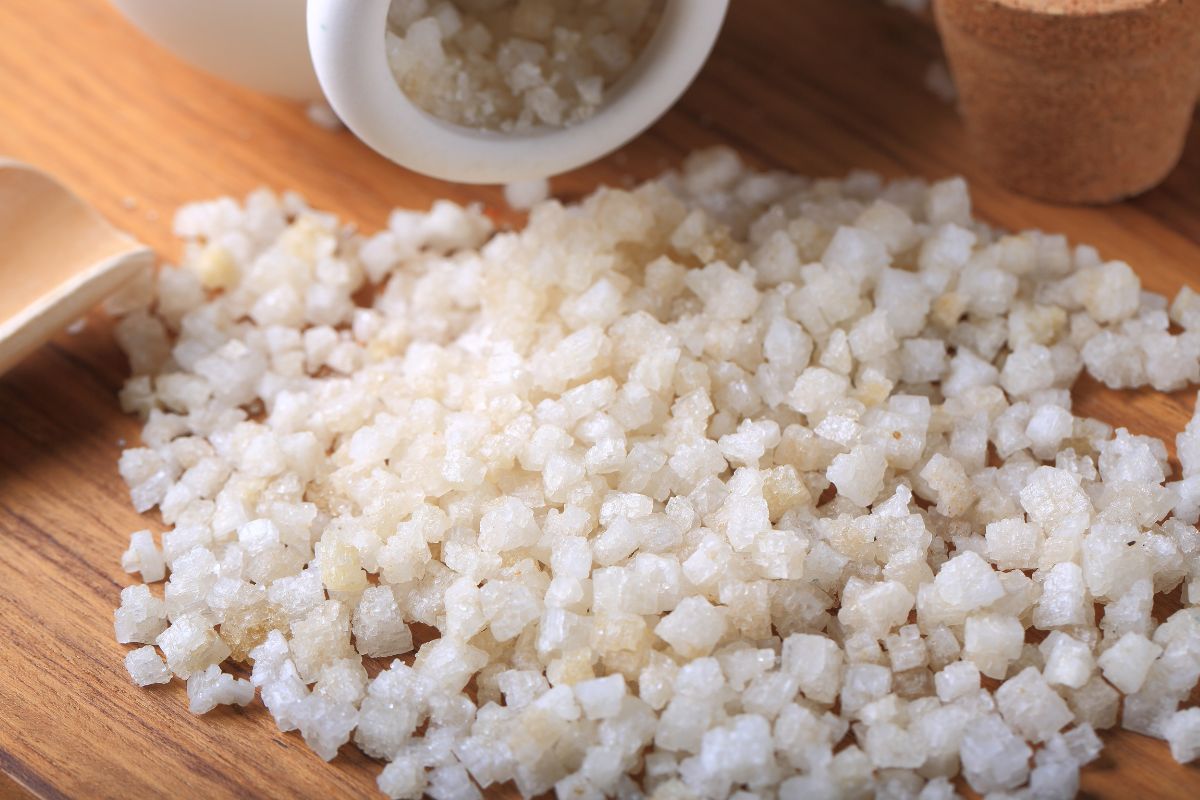If you’re interested in running as a hobby, then you already know how difficult recovery can be. This is especially true if you are training for a marathon, triathlon or a race.

Having a good recovery plan is just as vital as your training plan and diet plan, as your muscles need time to recover in order to take on the next challenge.
Have you ever considered using Epsom salt baths as part of your recovery plan? Well, we’re here to tell you why you should!
What Are Epsom Salts?
Epsom salts are a type of naturally occurring mineral salt that are a compound of magnesium and sulfate. These are often referred to as rock salts as they resemble small rock formations.
The term Epsom salt is derived from the fact that these salts were reportedly discovered near the small town of Epsom in England nearly 400 years ago.
These salts have really garnered a name for themselves within the health and wellbeing community, as they are known for their pain relieving properties, making them useful for headaches, muscle aches and pains, and can even reduce soreness and heal small cuts and scrapes.
Benefits Of Epsom Salt Baths
Let’s take a look in more detail at some of the benefits of Epsom salts and Epsom salt baths.
Prevents Muscle Inflammation
When Epsome salt is placed in water, the minerals such as magnesium and sulfate get absorbed into the body through the skin.
Epsom salt baths have been used for years to treat muscle aches and pains, along with bruises, cuts and scrapes.
By soaking in a bath with Epsom salts for around 15 minutes, you can help to speed up the recovery process, as the salts work to relax the muscles and the combination of the warm water and salt can also help reduce and prevent muscle inflammation, making recovery times much quicker in the long run.
Pain Relief
The magnesium sulfate in Epsom salts is known to ease pain, helping to soothe sore muscles, reduce tension and decrease the overall inflammation of the body.
This is largely due to the fact that these salts can also reduce swelling, and the heat from the water when combined with the minerals of the salts encourages blood flow to sore areas in the body, leading to fast recovery and pain relief.
Banishes Muscle Soreness & Tension
As a runner, you already know how annoying sore muscles can be.
In addition, you can experience muscle tension for days after a good workout or training session, which can make recovery days feel even longer and more difficult.
When your body is under stress, and muscles are sore and up tight, your body is lacking in magnesium.
The extra added magnesium you can get from bath salts can replenish your magnesium levels and therefore speed up your recovery and relieve cramps, aches and pains more effectively.

Should You Add Epsom Salt Baths To Your Recovery Plan?
Should you be using Epsom salt baths as part of your recovery plan?
Well, with all of the above benefits in mind, Epsom salt baths are a great addition to any recovery plan, so yes!
The good news is that it’s not a complicated process, as you can add these salts to a nightly bath after a run or workout.
How To Use Epsom Salts For Recovery
If you want to implement Epsom salts in your recovery routine, then you’ll first need to purchase some.
Epsom salts are really cost effective, and you can find these in your local store or on Amazon.
Our best picks are Coach Soak Muscle Recovery Bath Soak and Dr Teal’s Epsom Salt Bath Soaking Solution.
Then, once you have your Epsom salts, you will need to start running a bath with warm water.
The hotter, the better as the heat will aid muscle healing, however, don’t do it too hot so that you burn your skin or that you can’t handle it.
Next, you will want to add in around 2 cups of Epsom salts to a standard sized bathtub.
It is worth noting that you check the guide on the particular brand of Epsom salts that you have purchased for a truly accurate amount for the best results.
Whilst the hot water is still running, pour the Epsom salts into the bath. It is best to do this near the faucet as the pressure of the running water will help to dissolve the salts faster.
Then, once the tub is full and ready to go, you can hop in and enjoy the aroma and feel of the hot water.
It is best to soak in the tub for around 12-15 minutes. However, some people prefer to soak for up to 20 minutes.
We would recommend sticking to the 15 minute rule as this is proven to aid in muscle relaxation and recovery.
Once you’ve bathed, make sure that you rinse off with fresh water to remove excess salt from the skin as this can dry out your skin and cause cracking.
Summary
To summarize, Epsom salts have been used for years to aid in the recovery of muscles, cuts, scrapes, bruises, headaches and more.
If you’re looking for a new way to speed up your recovery process after a run, and prevent muscle soreness and inflammation, then using Epsom salt baths is the way to go.
- Can Dogs Run Faster Than Humans? (Running With Your Furry Friend) - October 4, 2022
- 10 Doggie Fun Runs You Will Love [Ultimate Guide] - October 4, 2022
- What Are Division Results In Running? - October 4, 2022








